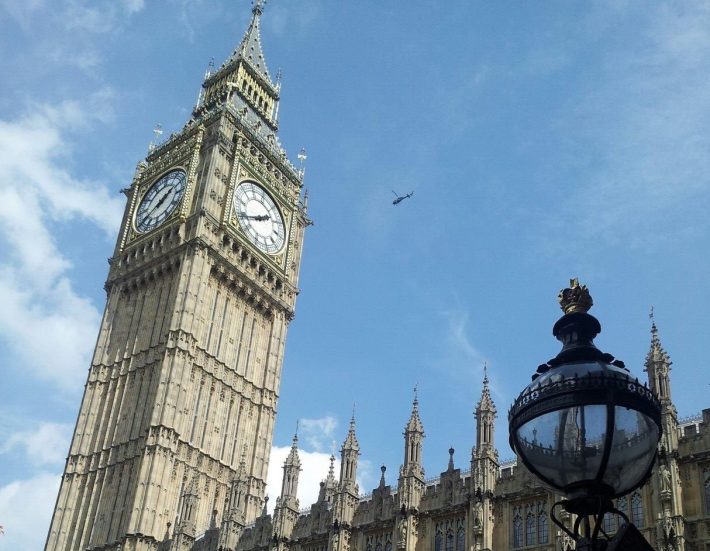BES POST Fellow Publishes Briefing on Climate Change and Agriculture
Heather Plumpton reflects on her time as a BES Fellow in the Parliamentary Office for Science and Technology (POST).

I was lucky enough to be in working in Parliament, writing a briefing on climate change and agriculture. It was during the time that Parliament had its first debate on climate change in 2 years on 28th February 2019 and then declared a Climate and Environment Emergency on 1st May 2019. With the new Agriculture Bill and the new Environment Bill on the horizon, there seemed to be a real potential for policy changes in these areas. Just as I was finishing my time in Parliament, on 2nd May 2019, the Committee on Climate Change (CCC) published their advice to the government on setting a net-zero emissions target for 2050. And it’s not just in government that the possibility for change was in the air – in January 2019 the National Farmers Union (NFU) announced their goal of net zero emissions from UK agriculture by 2040. At times of policy change like these, the need for balanced, independent syntheses of scientific evidence for policy makers is absolutely essential. That’s why I was so excited to be working on the topic of climate change and agriculture for the BES Parliamentary Office of Science and Technology (POST) Fellowship.
Exciting topics don’t always make for the easiest of topics to write about, however. The briefing that I was tasked with producing over 3 months (called a ‘POSTnote’) needed to cover the impacts of climate change on agriculture, sources of GHG emissions from agriculture, mitigation options for reducing those emissions, and options for adapting agriculture to climate impacts. The scope of the briefing was global agriculture, with a lens on UK food security. All of this information needed to be condensed into a mere 4 pages of concise and readable information for a non-expert audience.
Thankfully I had a plenty of help from experts in academia, government and farming who agreed to be interviewed as part of the research process for the briefing. This was one of the most enjoyable aspects of the work for me. In comparison to working on my PhD, where you can spend months working on a specific detail of a problem, this gave me an opportunity to step back and look at the bigger picture. For academics, particularly early career researchers, I think this is quite a rare treat to be able to take broad overview of a topic and consider the strengths and gaps in the evidence base for the field as a whole. This would not be possible without inputs from experts in the field, so I am very grateful to everyone who took time out of their busy schedules to contribute to the briefing.
Condensing all of that expertise and information into 4 pages was never going to be easy. Through the multiple rounds of re-drafting, reviews and re-re-drafting, I learnt that writing a briefing for a policy audience doesn’t only mean avoiding acronyms, jargon and explaining scientific concepts in simple terms: it also requires very concise and precise writing. Every sentence counts. Whole afternoons can be spent crafting a single sentence to get the maximum information across in the clearest way possible. I hope I will take some of that training with me in my future career, as well as the very fond memories of working in Parliament with an amazing cohort of PhD fellows at POST. I thoroughly enjoyed my time working at POST and cannot recommend the experience highly enough for any PhD student interested in science-policy.
POSTnote 600: Climate Change and Agriculture is available to read here: https://researchbriefings.parliament.uk/ResearchBriefing/Summary/POST-PN-0600
Like what we stand for?
Support our mission and help develop the next generation of ecologists by donating to the British Ecological Society.